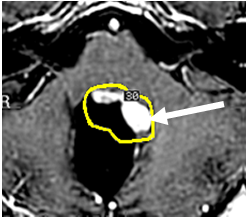Cerebellar Mutism
by Loice Swisher, M.D., co-authored by Dr. Peter Philips New resources added at the end of this article. A child s loss of speech after removal of a cerebellar tumor was initially described in 1958 (Daly and Love 1958). Cerebellar mutism was first reported in 1979 by Hirsch after a posterior fossa tumor resection. In …


